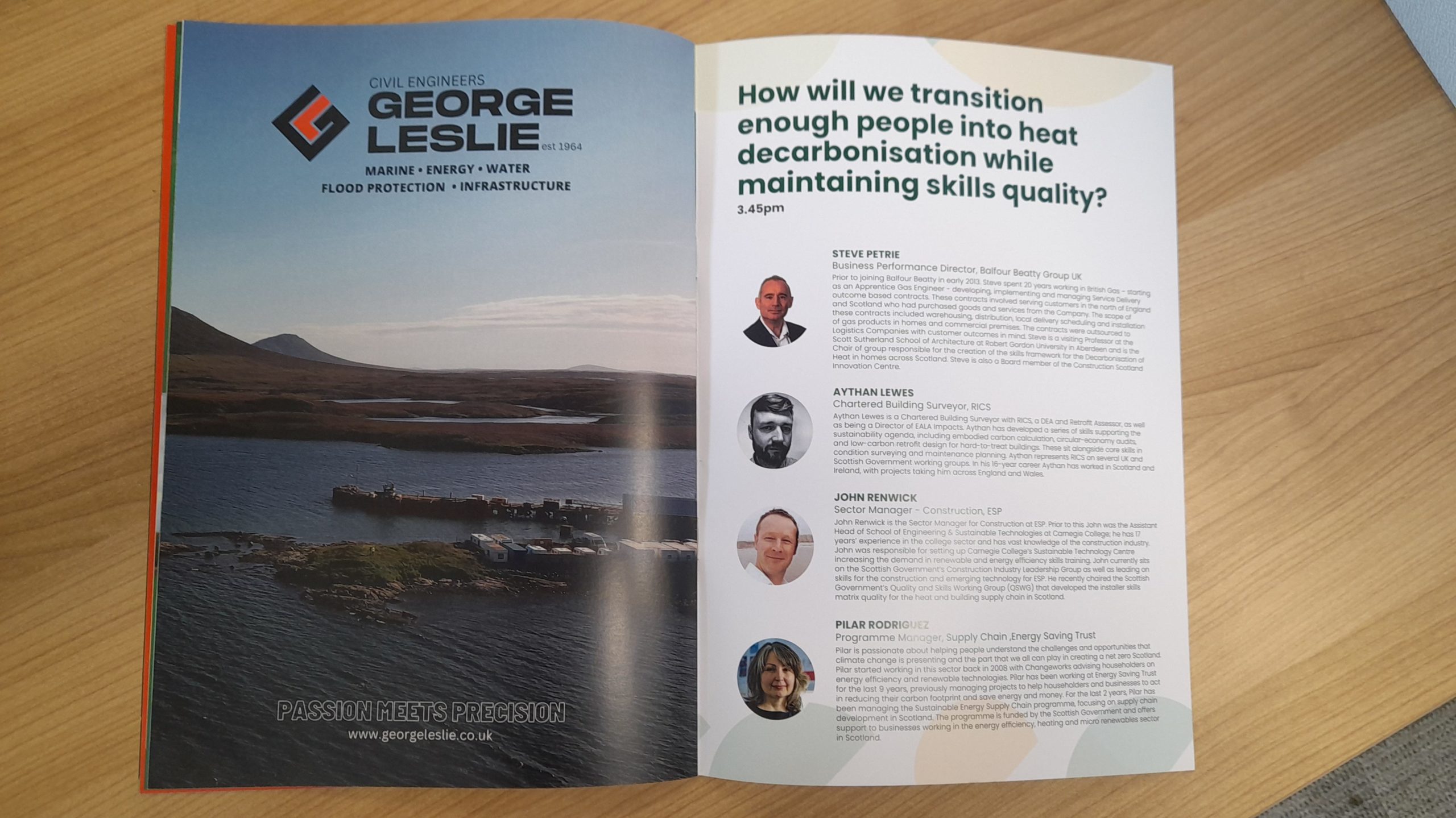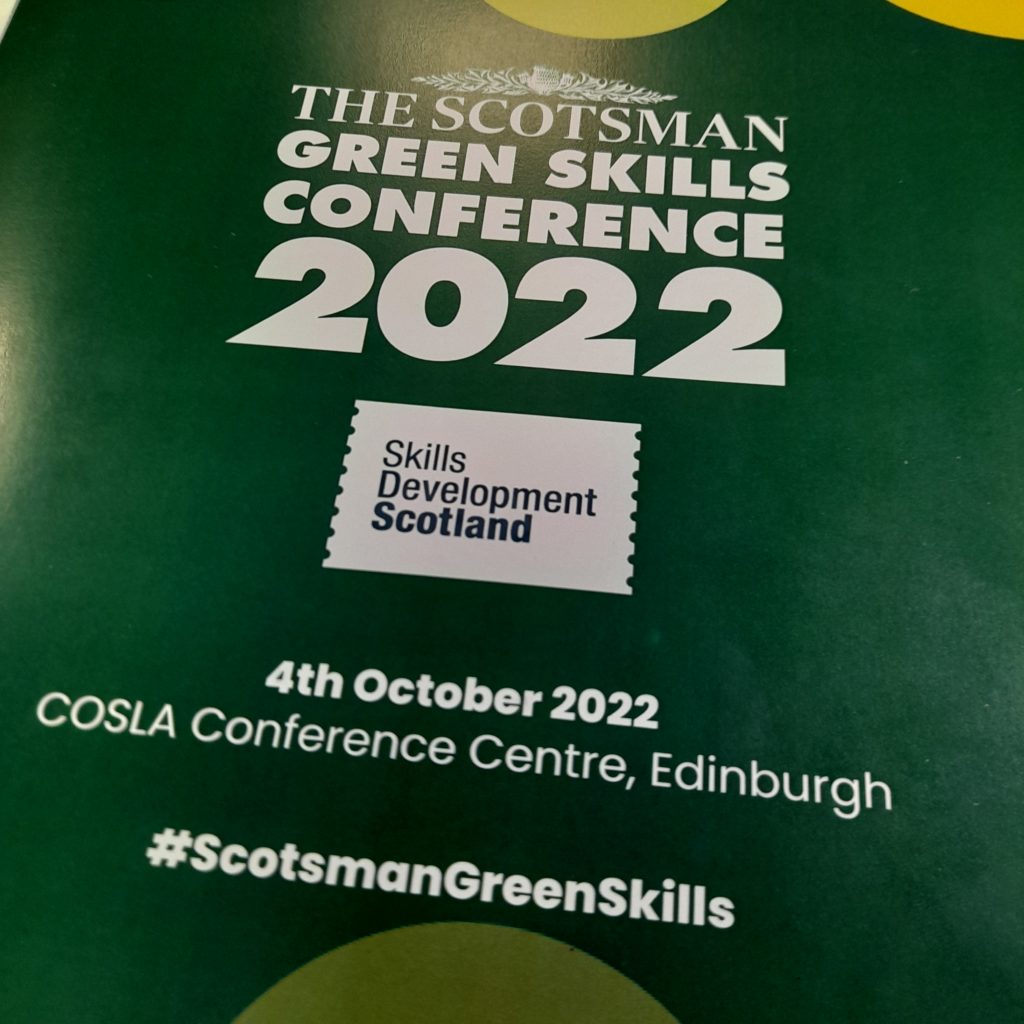This is the second year of the Scotsman Green Skills Conference and over 150 delegates attended the event at the COSLA Centre in Haymarket Edinburgh to listen and debate the future of Green Skills in the workplace for Scotland.
The debate on whether we need to take action to tackle the Climate Emergency is over – all nations agree that is action is required. COP26 was a year ago in Scotland and next month nations across the world will be gathering for in Egypt for COP27.
In a wet and windy Edinburgh, delegates and panel members discussed how we harness our skill pool now and how to prepare the next generation to tackle this climate emergency.

Commercial restraints are always key in making decisions at the corporate level, but are organisations missing the opportunities to financially benefit?
Lorna Slater MSP, Minister for Green Skills, Circular Economy, and Biodiversity talked of how we must address the circular economy issues that contribute to the climate emergency and how we use waste.
We know that scrap metals are a resource, they can be sold on – what of plastics? What do we do with our waste plastic? Our Net Zero ambitions do not match our actions as there are huge opportunities in the circular economy that ‘we are barely scratching the surface.’
Waste plastics are now being utilised to generate hydrogen. This source of hydrogen can then be used as a fuel to power heavy vehicles such as HGVs as well as fuel cells for power generation which can be used to replace standard diesel-powered generators.
Whilst companies may announce they intend to be net zero by 2030, what of their supply chain? If a company is net zero what benefit does that bring if 95% of their supply chain is not.
Questions need to be asked whether the drive towards net zero is worth it if the smaller companies who are unable to pivot as quickly, are being left behind. Rather than these large companies demanding their suppliers change on their own, we are now seeing public bodies working in partnership, encouraging smaller SMEs and supporting them, helping them along the way.
Scotland can achieve the Climate Emergency Skills action plan target by tackling the key issues from higher education right through to reskilling and upskilling employees. A lot of people do not realise they already have the skills which are easily transferable and highly desirable to succeed in the green economy.
In the house building sector, deadlines are being set that no more gas boilers to be installed in new houses going forward and a debate over rebuilding or refurbishing current housing stock to make them more efficient in their heating. But what of those SMEs who have been operating for generations installing central heating systems.

These same generational companies have utilised Skills Development Scotland use of Colleges across Scotland that provide PAS 2030:2019 training to be fully certified in installing net zero heating systems such as heat storage or heat pumps.
We also need the digital skills as digital tools lead to improved decision making, while technology convergence (biotech, robotics etc) lead to greater efficiency and progress.
It is about understanding the targets and how organisations can take the opportunity to capitalise financially. Also, how to seize those commercial opportunities in the growing marketplace for these new emerging markets as the business-as-usual model is not working.
We must be bold if we are to stimulate the green skills for the future of Scotland.

